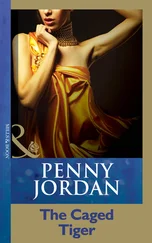"Put it in your mouth, Balram. It's for you."
"Yes, sir. It's very good. Chewy. Thank you."
"Let's go over all this slowly and clearly, okay?" the man in the black suit said. The red juice almost dripped out of his mouth as he spoke.
"All right."
"The judge has been taken care of. If your man does what he is to do, we'll have nothing to worry about."
"My man will do what he is to do, no worries about that. He's part of the family. He's a good boy."
"Good, good."
The man in the black coat looked at me and held out a piece of paper.
"Can you read, fellow?"
"Yes, sir." I took the paper from his hand and read:
TO WHOMSOEVER IT MAY CONCERN,
I, BALRAM HALWAI, SON OF VIKRAM HALWAI, OF LAXMANGARH VILLAGE IN THE DISTRICT OF GAYA, DO MAKE THE FOLLOWING STATEMENT OF MY OWN FREE WILL AND INTENTION:
THAT I DROVE THE CAR THAT HIT AN UNIDENTIFIED PERSON, OR PERSONS, OR PERSON AND OBJECTS, ON THE NIGHT OF JANUARY 23RD THIS YEAR. THAT I THEN PANICKED AND REFUSED TO FULFILL MY OBLIGATIONS TO THE INJURED PARTY OR PARTIES BY TAKING THEM TO THE NEAREST HOSPITAL EMERGENCY WARD. THAT THERE WERE NO OTHER OCCUPANTS OF THE CAR AT THE TIME OF THE ACCIDENT. THAT I WAS ALONE IN THE CAR, AND ALONE RESPONSIBLE FOR ALL THAT HAPPENED.
I SWEAR BY ALMIGHTY GOD THAT I MAKE THIS STATEMENT UNDER NO DURESS AND UNDER INSTRUCTION FROM NO ONE.
SIGNATURE OR THUMBPRINT:
(BALRAM HALWAI)
STATEMENT MADE IN THE PRESENCE OF THE FOLLOWING WITNESSES.
KUSUM HALWAI, OF LAXMANGARH VILLAGE,
GAYA DISTRICT
CHAMANDAS VARMA, ADVOCATE, DELHI HIGH
COURT
Smiling affectionately at me, the Mongoose said, "We've already told your family about it. Your granny, what's her name?"
"…"
"I didn't hear that."
"…m."
"Yes, that's it. Kusum. I drove down to Laxmangarh-it's a bad road, isn't it?-and explained everything to her personally. She's quite a woman."
He rubbed his forearms and made a big grin, so I knew he was telling the truth.
"She says she's so proud of you for doing this. She's agreed to be a witness to the confession as well. That's her thumbprint on the page, Balram. Just below the spot where you're going to sign."
"If he's illiterate, he can press his thumb," the man in the black coat said. "Like this." He pressed his thumb against the air.
"He's literate. His grandmother told me he was the first in the family to read and write. She said you always were a smart boy, Balram."
I looked at the paper, pretending to read it again, and it began to shake in my hands.
What I am describing to you here is what happens to drivers in Delhi every day, sir. You don't believe me-you think I'm making all this up, Mr. Jiabao?
When you're in Delhi, repeat the story I've told you to some good, solid middle-class man of the city. Tell him you heard this wild, extravagant, impossible story from some driver about being framed for a murder his master committed on the road. And watch as your good, solid middle-class friend's face blanches. Watch how he swallows hard-how he turns away to the window-watch how he changes the topic at once.
The jails of Delhi are full of drivers who are there behind bars because they are taking the blame for their good, solid middle-class masters. We have left the villages, but the masters still own us, body, soul, and arse.
Yes, that's right: we all live in the world's greatest democracy.
What a fucking joke.
Doesn't the driver's family protest? Far from it. They would actually go about bragging. Their boy Balram had taken the fall, gone to Tihar Jail for his employer. He was loyal as a dog. He was the perfect servant.
The judges? Wouldn't they see through this obviously forced confession? But they are in the racket too. They take their bribe, they ignore the discrepancies in the case. And life goes on.
For everyone but the driver.
That is all for tonight, Mr. Premier. It's not yet three a.m., but I've got to end here, sir. Even to think about this again makes me so angry I might just go out and cut the throat of some rich man right now.
Mr. Jiabao.
Sir.
When you get here, you'll be told we Indians invented everything from the Internet to hard-boiled eggs to spaceships before the British stole it all from us.
Nonsense. The greatest thing to come out of this country in the ten thousand years of its history is the Rooster Coop.
Go to Old Delhi, behind the Jama Masjid, and look at the way they keep chickens there in the market. Hundreds of pale hens and brightly colored roosters, stuffed tightly into wire-mesh cages, packed as tightly as worms in a belly, pecking each other and shitting on each other, jostling just for breathing space; the whole cage giving off a horrible stench-the stench of terrified, feathered flesh. On the wooden desk above this coop sits a grinning young butcher, showing off the flesh and organs of a recently chopped-up chicken, still oleaginous with a coating of dark blood. The roosters in the coop smell the blood from above. They see the organs of their brothers lying around them. They know they're next. Yet they do not rebel. They do not try to get out of the coop.
The very same thing is done with human beings in this country.
Watch the roads in the evenings in Delhi; sooner or later you will see a man on a cycle-rickshaw, pedaling down the road, with a giant bed, or a table, tied to the cart that is attached to his cycle. Every day furniture is delivered to people's homes by this man-the deliveryman. A bed costs five thousand rupees, maybe six thousand. Add the chairs, and a coffee table, and it's ten or fifteen thousand. A man comes on a cycle-cart, bringing you this bed, table, and chairs, a poor man who may make five hundred rupees a month. He unloads all this furniture for you, and you give him the money in cash-a fat wad of cash the size of a brick. He puts it into his pocket, or into his shirt, or into his underwear, and cycles back to his boss and hands it over without touching a single rupee of it! A year's salary, two years' salary, in his hands, and he never takes a rupee of it.
Every day, on the roads of Delhi, some chauffeur is driving an empty car with a black suitcase sitting on the backseat. Inside that suitcase is a million, two million rupees; more money than that chauffeur will see in his lifetime. If he took the money he could go to America, Australia, anywhere, and start a new life. He could go inside the five-star hotels he has dreamed about all his life and only seen from the outside. He could take his family to Goa, to England. Yet he takes that black suitcase where his master wants. He puts it down where he is meant to, and never touches a rupee. Why?
Because Indians are the world's most honest people, like the prime minister's booklet will inform you?
No. It's because 99.9 percent of us are caught in the Rooster Coop just like those poor guys in the poultry market.
The Rooster Coop doesn't always work with minuscule sums of money. Don't test your chauffeur with a rupee coin or two-he may well steal that much. But leave a million dollars in front of a servant and he won't touch a penny. Try it: leave a black bag with a million dollars in a Mumbai taxi. The taxi driver will call the police and return the money by the day's end. I guarantee it. (Whether the police will give it to you or not is another story, sir!) Masters trust their servants with diamonds in this country! It's true. Every evening on the train out of Surat, where they run the world's biggest diamond-cutting and-polishing business, the servants of diamond merchants are carrying suitcases full of cut diamonds that they have to give to someone in Mumbai. Why doesn't that servant take the suitcase full of diamonds? He's no Gandhi, he's human, he's you and me. But he's in the Rooster Coop. The trustworthiness of servants is the basis of the entire Indian economy.
Читать дальше












